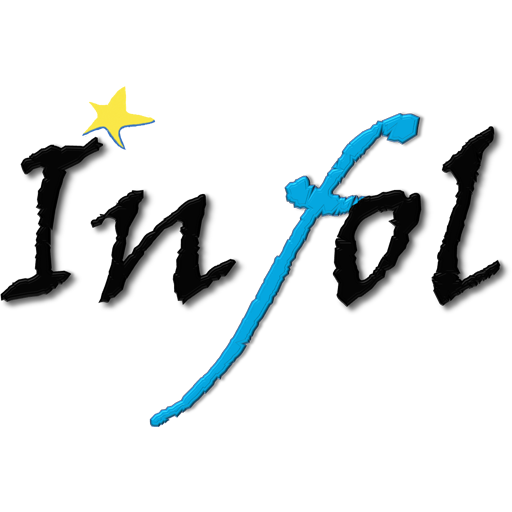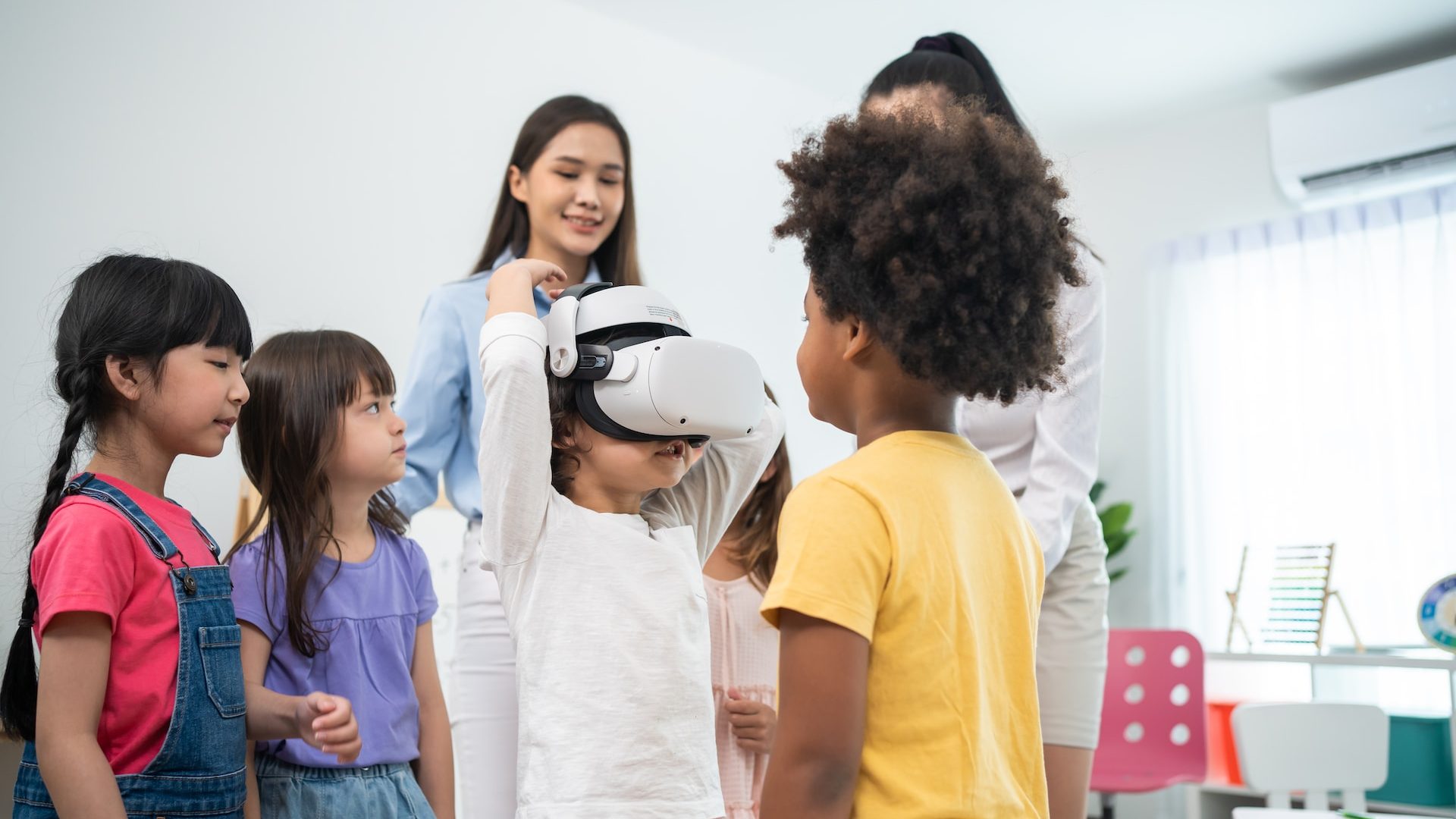DESCRIPTION
In this immersive and engaging program, you will embark on a journey into the world of virtual reality (VR) and discover how this transformative technology can revolutionize the field of education.
Over five dynamic lessons spanning 20 hours, you will gain a deep understanding of VR’s applications and potential impact on teaching and learning. By completing this course, you’ll be well-prepared to harness the power of virtual reality technologies in teaching. Whether you’re an educator looking to innovate your classroom or a tech enthusiast interested in the educational applications of VR, this course will equip you with the knowledge and skills to make a meaningful impact. Join us on this exciting journey into the future of education with Virtual Reality Technologies in Teaching!
Understand AR and VR Fundamentals: – Explore the fundamental concepts behind augmented reality (AR) and virtual reality (VR). – Gain insight into the historical evolution and technological underpinnings of AR and VR. Apply AR in Teaching: – Learn to create interactive and engaging AR content suitable for different subjects and age groups. – Understand how to use AR tools and platforms for educational purposes. Utilize VR in Teaching: – Develop the skills to design immersive VR experiences that enhance learning. – Explore the educational potential of VR hardware and software. Curriculum Integration: – Explore strategies for seamlessly integrating AR and VR into existing curricula. – Adapt AR and VR activities to match specific learning objectives and outcomes. Implementation and Assessment: – Implement AR and VR projects in real classroom settings. – Evaluate the impact of these technologies on student engagement, understanding, and performance. Ethical Considerations: – Discuss the ethical and privacy considerations when using AR and VR in education. – Explore guidelines for responsible implementation.
Methodology & assessment
Lectures and Presentations: Expert instructors will deliver informative lectures and presentations, covering theory and best practices.
Hands-On Workshops:Participants will engage in practical, hands-on workshops where they will create AR and VR content, gaining firsthand experience.
Group Discussions:Collaborative discussions will allow participants to share insights, challenges, and innovative ideas related to AR and VR in education.
Real-World Examples:The course will feature case studies and real-world examples, showcasing successful implementations of AR and VR in various educational settings.
Project-Based Learning:Participants will work on project assignments, applying their knowledge and creating educational content using AR and VR.
Assessment and Feedback:
Regular assessments and feedback sessions will help participants track their progress and receive guidance for improvement.
-Guest Speakers:Guest speakers from the AR and VR education community may be invited to provide additional perspectives and insights.
Learning Outcomes
Introduction to Virtual Reality Technologies Upon completion of this lesson, participants will be able to:
- Define virtual reality and its key components.
- Understand the historical development and evolution of virtual reality technologies.
- Identify the different types of virtual reality systems and their applications in education.
- Recognize the potential benefits and challenges of integrating virtual reality into teaching and learning.
Hardware and Software Components of Virtual Reality After completing this lesson, participants will be able to:
- Describe the essential hardware components of virtual reality systems.
- Explain the role of software in creating immersive virtual reality experiences.
- Compare and contrast various virtual reality hardware and software options available in the market.
- Identify the system requirements for implementing virtual reality in educational settings.
Pedagogical Approaches in Virtual Reality Teaching Upon completion of this lesson, participants will be able to:
- Explore different pedagogical theories and approaches relevant to virtual reality in education.
- Understand how virtual reality can enhance learning experiences and engagement.
- Design learning activities that leverage the unique features of virtual reality.
- Analyze best practices for integrating virtual reality into different educational contexts.
Content Creation for Virtual Reality After this lesson, participants will be able to:
- Demonstrate knowledge of tools and platforms for creating virtual reality content.
- Develop basic virtual reality experiences for educational purposes.
- Evaluate the effectiveness of virtual reality content in achieving learning objectives.
Implementation and Assessment of Virtual Reality in Teaching At the end of this lesson, participants will be able to:
- Develop strategies for implementing virtual reality in teaching and training programs.
- Assess the impact of virtual reality on student learning outcomes.
- Address challenges and considerations related to the integration of virtual reality in educational institutions.
- Formulate plans for ongoing professional development in virtual reality teaching practices.
All our training courses are in English language, but we can provide linguistic support in French, Bulgarian, Turkish, Spanish, Romanian, Portuguese
The educational programme will be re-organised accordingly to the professional needs of our partners. All courses proposed will pass through an accurate assesment of needs, goals and learning outputs. This process will be enhanced before every partnership request as the daily schedule.
20/24/28/40 hours
Course location: Infol – Innovation Training Orientation and Employment
Site: Rome, Athens
Number of days of training: 5/6/7/10
Lesson time: 4 hours
Language of instruction: English , French, Turkish, Italian, Spanish,Bulgarian, Romanian.
Participation fee:send mail to [email protected]
Methodology
The course will combine theory input and discussion with analysis of practical incidents with the purpose of finding out different possible solutions. The methodology used is mainly content-based language instruction (communication through specific content).Text discussion, oral presentation and discussion, role-playing, self- and meta-reflection, debating and group interaction will be the strategies more frequently used.
- Active methodologies
- Role playing
- Simulations
- New technologies
- Visits/workshops in educational institutions as schools, universities, educational centers, and companies
Certificates
- Europass Mobility
- Certificate of Attendance
Upcoming sessions
Location: Roma
- September 2024: Week 1 (September 2 – 6)
- October 2024: Week 2 (October 7 – 11)
- November 2024: Week 2 (November 4 – 8)
- December 2024: Week 2 (December 9 – 13)
- January 2025: Week 3 (January 13 – 17)
- March 2025: Week 3 (March 17 – 21)
- April 2025: Week 4 (April 21 – 25)
- May 2025: Week 3 (May 19 – 23)
- July 2025: Week 5 (July 28 – August 1)
- September 2025: Week 5 (September 29 – October 3)
- November 2025: Week 1 (November 3 – 7)
- December 2025: Week 1 (December 1 – 5)

